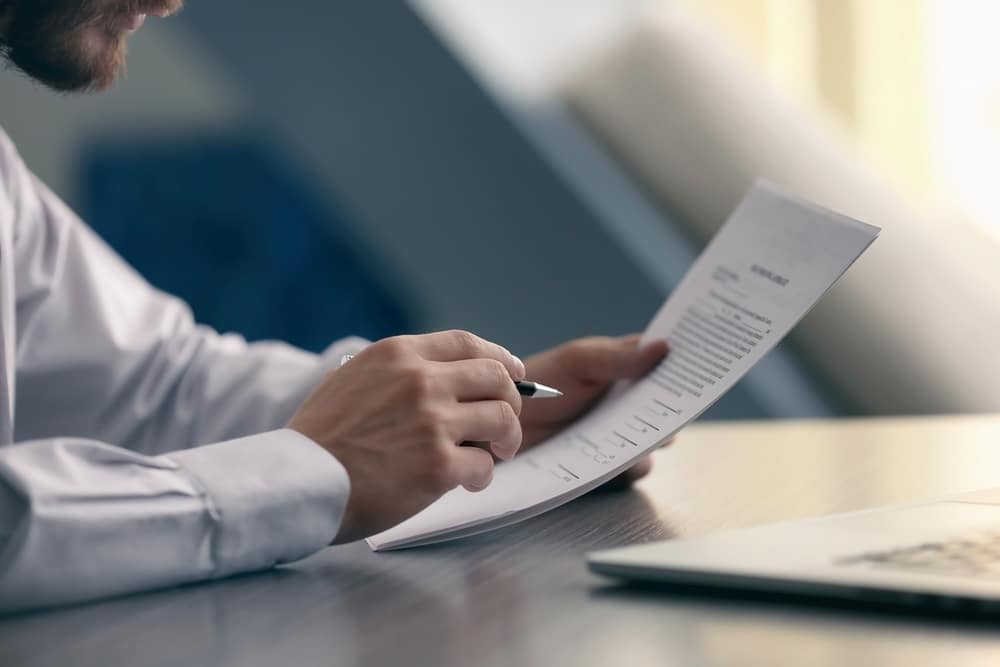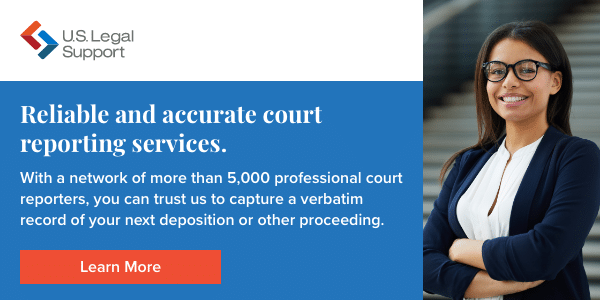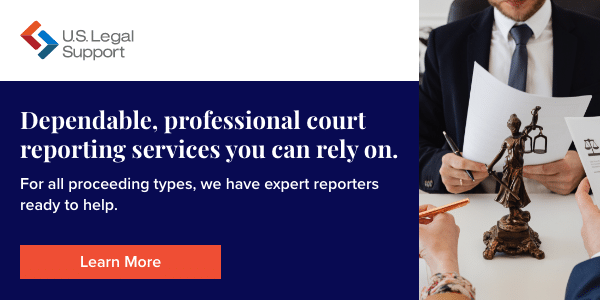A Guide to Deposition Transcripts

Depositions allow attorneys to gather important information from witnesses before a court trial begins. As such, these official proceedings are the cornerstones of the discovery phase of a legal case.
Although both in-person and virtual depositions take place outside of a courtroom, they’re nevertheless documented by an on-site or remote court reporter who captures exactly what is said and by whom.
While a trial’s official transcript may be instrumental in overturning a verdict or building legal precedent for future litigation, it is the deposition transcript that’s more immediately critical to the case at hand.
Why Are Deposition Transcripts Important?
As you navigate how to prepare for a deposition, understanding transcripts will be very important. Deposition transcription services are important because of the benefits they offer both parties in a legal case. They provide an enduring, neutral record, they can help attorneys with trial strategy, and they can be used as courtroom evidence or as support in settlement negotiations.
Let’s dive a little deeper into each of these benefits below.
Enduring Record
When it comes to ensuring that every member of a legal proceeding has access to accurate trial information, an enduring record is critical. Legal counsels can often include multiple attorneys, paralegals, and other team members.
Fortunately, because deposition transcripts aren’t relegated to any individual party’s memory, notes, or interpretation, they offer a single, enduring record that can be shared amongst counsel, including those not present at the live deposition.
Neutral Record
A deposition transcript serves as a formal record of exactly what was said during a deposition without human misinterpretation, assumption, or bias.
Being able to review the written and accurate transcript of a deposition after the fact gives attorneys a second run at case details without external, multi-sensory input, such as:
- Witness appearances, presentations, and mannerisms
- Environmental distractions
- One’s own physical distractions (like hunger, headaches, discomfort, etc.)
Trial Strategy
Which witnesses will bear well under questioning? Whose story contradicts material evidence?
Attending depositions and reviewing deposition transcripts allows attorneys to examine testimony and evidence in detail, giving them the opportunity to:
- Carefully choose witnesses and script questions appropriately
- Select and refine their strategy and arguments
- Identify weaknesses in opposition evidence and testimonies
Courtroom Evidence
In general, depositions are intended to stay in the legal teams’ discovery phase rather than be heard by judges and juries. However, there are some exceptions.
Depositions transcripts can be read for the court:
- When a witness was deposed but is unavailable during the trial
- To impeach a witness who contradicts their deposition testimony during a trial
- When a party admits something during the deposition process that’s against their interest
It’s important to note that these rules vary depending on:
- Specific state or federal court guidelines
- The reason behind a missing witness
- Whether the case is a criminal or civil case
Settlement Negotiation Support
Not every case ends in the courtroom. The facts, opinions, and demeanors shared at depositions—and how their transcripts are then analyzed and investigated—are critical to deciding whether, when, and how to negotiate for a settlement versus proceeding to trial.
The Role of Court Reporting in Depositions
Casual conversation that occurs between lawyers and deponents before or after a court reporter has gone on or off the record might provide background information, but legally cannot be used. The ability to use information from the deposition at trial is limited to the contents of the official transcript taken on the record by a professional court reporter.
To that end, court reporters provide multiple areas of service during a legal proceeding. They:
- Capture a verbatim record using a recognized legal transcription method.
- Act as an officer of the court who can swear to the accuracy and neutrality of the final record.
Court Reporter Responsibilities
A deposition doesn’t officially begin until the court reporter goes on the record. At that time, they’ll typically:
- Swear in the witnesses
- Use dedicated technology and skills to capture every spoken word and identify the speakers
- Interrupt the proceeding to clarify mumbled or inaudible speech
- Provide a read-back of an earlier section of the deposition upon request
A realtime feed of the court reporter’s transcript may also be displayed, if either party has requested one.
Due to the legal importance of deposition transcripts, their quality and accuracy are paramount. To that end, the following tips can help ensure an accurate, certified final transcript:
- Ask witnesses to speak slowly and clearly
- Employ a qualified court reporter
Count on U.S. Legal Support for Accurate Deposition Transcripts
You can find the right court reporting service for your deposition with help from U.S. Legal Support. We’ll connect you to our network of 5,000+ professional court reporters nationwide for in-person, remote, and hybrid proceedings. We now offer an AI-generated deposition summary service that quickly distills lengthy transcripts into concise, digestible summaries to increase productivity and accelerate case strategy. Leveraging best-in-class AI technology, it can quickly review hundreds of pages of testimony to produce a thorough, fully editable, deposition summary, complete with multiple layers of summarization for ease of review.
Ready to learn more about our legal support services? Reach out today to discuss your legal needs.
Sources:
- The Law Dictionary. What Percentage of Lawsuits Settle Before Trial? What Are Some Statistics on Personal Injury Settlements? https://thelawdictionary.org/article/what-percentage-of-lawsuits-settle-before-trial-what-are-some-statistics-on-personal-injury-settlements/
- The Outline. Most criminal cases end in plea bargains, not trials. https://theoutline.com/post/2066/most-criminal-cases-end-in-plea-bargains-not-trials

Editoral Policy
Content published on the U.S. Legal Support blog is reviewed by professionals in the legal and litigation support services field to help ensure accurate information. The information provided in this blog is for informational purposes only and should not be construed as legal advice for attorneys or clients.



